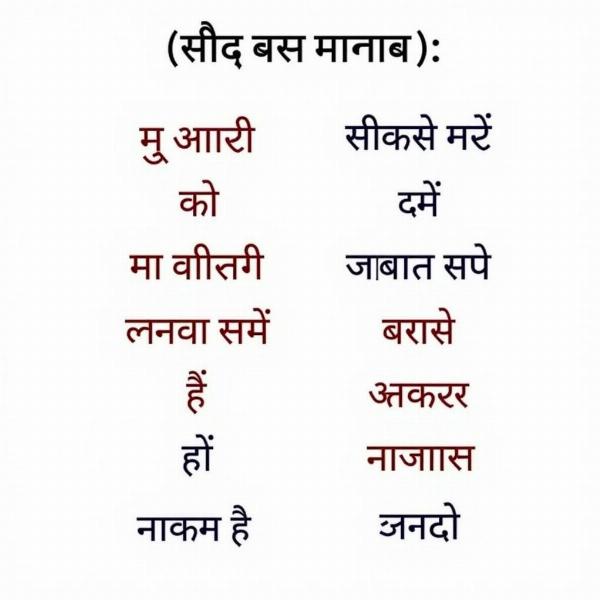Understanding the nuances of “come to an end” in Hindi is crucial for accurate communication. This phrase, commonly used in English, expresses the cessation or conclusion of something. Whether you’re translating documents, having a casual conversation, or exploring Hindi literature, knowing how to convey this concept effectively is essential. This article delves into various Hindi translations of “come to an end,” exploring their subtle differences in meaning and usage, empowering you to express yourself with precision and cultural sensitivity.
Different Ways to Say “Come to an End” in Hindi
Several Hindi phrases effectively translate “come to an end,” each carrying its own subtle connotations and suitable for different contexts. Let’s explore some of the most common and useful options:
-
समाप्त होना (samāpt honā): This is perhaps the most direct and commonly used translation, meaning “to finish” or “to be completed.” It’s appropriate for formal and informal settings, and works well for describing the conclusion of events, projects, or periods.
-
खत्म होना (khatm honā): This translates to “to end” or “to be finished.” While similar to samāpt honā, it carries a slightly more informal tone and can sometimes imply a sense of finality or even exhaustion.
-
अंत होना (ant honā): Meaning “to come to an end,” this phrase is more formal and often used in literary or philosophical contexts. It emphasizes the natural conclusion of something, rather than an abrupt stop.
-
पूरा होना (pūrā honā): This translates to “to be completed” or “to be fulfilled.” While not a direct synonym of “come to an end,” it can be used when something has reached its natural conclusion or achieved its intended purpose.
-
समापन होना (samāpan honā): This is a more formal and nuanced term for “conclusion” or “termination.” It’s often used in official contexts or when discussing legal or administrative matters.
Choosing the Right Phrase
Selecting the most appropriate Hindi translation of “come to an end” depends on the specific context and the nuance you wish to convey. For instance, when describing the end of a movie, khatm honā might be suitable, while samāpan honā would be more appropriate for the conclusion of a legal contract. Understanding these subtle differences is crucial for accurate and culturally sensitive communication.
Common Scenarios and Usage Examples
Let’s examine how these phrases are used in everyday conversations and different scenarios:
-
“The meeting came to an end.”: बैठक समाप्त हुई (baiṭhak samāpt huī) or बैठक खत्म हुई (baiṭhak khatm huī)
-
“The story came to a surprising end.”: कहानी एक आश्चर्यजनक अंत पर पहुँची (kahānī ek āścaryajanak ant par pahuncī)
-
“Their relationship came to an end.”: उनका रिश्ता खत्म हो गया (unkā riśtā khatm ho gayā)
 Hindi Phrases for End
Hindi Phrases for End
What do Indians mean by “khatam shuru”?
The phrase “khatam shuru” literally translates to “end beginning.” While seemingly contradictory, it’s used colloquially to describe situations where something begins and ends almost simultaneously or where a new beginning follows immediately after an ending. This phrase reflects the cyclical nature of life and the constant interplay of beginnings and endings.
Conclusion
Mastering the various ways to express “come to an end” in Hindi allows for clear and nuanced communication. By understanding the subtle differences between phrases like samāpt honā, khatm honā, and ant honā, you can choose the most appropriate expression for any situation. This knowledge enhances your understanding of Hindi and enables you to engage with the language and culture on a deeper level.
FAQ
-
What is the most formal way to say “come to an end” in Hindi? Samāpan honā is generally considered the most formal.
-
Can I use khatm honā in a formal setting? While generally informal, khatm honā can be used in some formal settings, depending on the specific context.
-
Is there a difference between samāpt honā and pūrā honā? Yes, samāpt honā emphasizes the ending of something, while pūrā honā focuses on completion or fulfillment.
-
What is the literal meaning of ant honā? Ant honā literally means “to come to an end.”
-
How do I choose the right phrase for my situation? Consider the context and the specific nuance you want to convey.
initial funding meaning in hindi
hindi meaning of manchester
shebait meaning in hindi
term ka hindi meaning
Meaning-Hindi.in is your trusted partner for professional Hindi translation services. We specialize in various domains, including business, legal, technical, website localization, educational, and specialized translations. We also offer express translation services for urgent needs. Our team of expert linguists ensures accuracy, cultural sensitivity, and timely delivery. Contact us today for your translation needs! Email: [email protected], Phone: +91 11-4502-7584 or visit our website Meaning-Hindi.in.